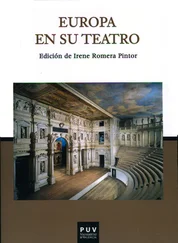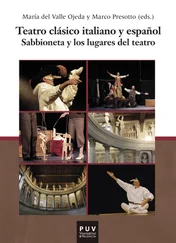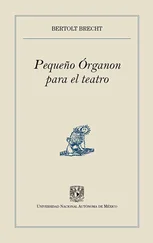For example, Ritter’s Hardware had been emptied of its traditional merchandise and restructured as an elaborate maze of lavatories. Upon entering the front door you immediately found yourself standing between a toilet and a sink. Built into one of the walls of this small room was another door that opened upon another lavatory that was somewhat larger in dimensions. This room had two doors that led to further lavatories, some of which could be reached only by ascending a spiral staircase or walking down a long, narrow corridor. Each lavatory differed somewhat in size and décor. None of the lavatories was functional. The exterior of Ritter’s Hardware was given a new façade constructed of large stone blocks and a pair of fake towers standing on either side of the building and rising some distance above it. A sign above the front door designated the former hardware store COMFORT CASTLE. Ritter’s new job was to sit in a chair on the sidewalk outside his former place of business wearing a simple uniform with the word ATTENDANT displayed in sewn lettering below the left shoulder.
Leeman the barber was even less fortunate in the new career that had been assigned to him. His shop, renamed ‘Baby Town,’ had been refurbished into a gigantic playpen. Amid stuffed animals and an array of toys, Leeman was required to languish in infants’ clothing sized for an adult.
All of the businesses along Main Street had been transformed in some manner, although their tone was not always as whimsical as Ritter’s Comfort Castle or Leeman’s Baby Town. A number of the buildings appeared simply as abandoned storefronts — until one explored the interior and discovered that the back room was actually a miniature movie theater where foreign cartoons were projected upon a bare wall or that hidden in the basement was an art gallery filled entirely with paintings and sketches of questionable taste. Sometimes these abandoned storefronts were precisely what they appeared to be, except you would find yourself locked inside once the door had closed, forcing you to exit out the back.
Behind the stores of Main Street was a world of alleys where it was perpetually night, an effect created by tunnellike arcades enclosing this vast area. Dim lamps were strategically placed so that no stretch of alley was entirely in darkness as you wandered between high wooden fences or brick walls. Many of the alleys ended up in someone’s kitchen or living room, allowing an escape back into the town. Some of them kept growing more and more narrow until no further progress was possible and every step leading to this point needed to be retraced. Other alleys gradually altered as one walked along their length, eventually presenting a complete change of scene from that of a small town to one of a big city where screams and sirens could be heard in the distance, although these sounds were only recordings piped in through hidden speakers. It was in just such a vicinity, where painted theatrical backdrops of tall tenement buildings with zig-zagging fire escapes rose up on every side, that I worked at my own new job.
At the terminus of an obscure alley where steam was pumped through the holes of a false sewer grating, I had been stationed in a kiosk where I sold soup in paper cups. To be more accurate, it was not actually soup that I was given to sell but something more like bouillon. Behind the counter that fronted my kiosk there was a thin mattress on the floor where I could sleep at night, or whenever I felt like sleeping, since it seemed unlikely that any customers would venture through that labyrinth of alleys so that I might serve them. I subsisted on my own bouillon and the water I used to concoct this desolate repast. It seemed to me that the new town manager would finally succeed in the task which his predecessors had but lazily pursued over the years: that of thoroughly bleeding the town of the few resources that had been left to it. I could not have been more wrong in this assessment.
Within a matter of weeks, I had a steady stream of customers lined up outside my bouillon concession who were willing to pay an outrageous price for my watery, yellowish liquid. These were not my fellow citizens but people from outside. I noticed that nearly all of them carried folded brochures which either extruded from their pockets or were grasped in their hands. One of these was left behind on the counter that fronted my kiosk, and I read it as soon as business slowed down. The cover of the brochure bore the words HAVE A FUN TIME IN FUNNY TOWN. Inside were several captioned photographs of the various ‘attractions’ that our town had to offer to the curious tourist. I was in awe of the town manager’s scheme. Not only had this faceless person taken our last penny to finance the most extensive construction project the town had ever seen, from which there was no doubt a considerable amount of kickback involved, but this ingenious boondoggle had additionally brought an unprecedented flood of revenue into our town.
Yet the only one who truly prospered was the town manager. Daily, sometimes hourly, collections were made at each of the town’s attractions and concessions. These were carried out by solemn-faced strangers who were visibly armed with an array of weapons. In addition, I noticed that spies had been integrated among the tourists, just to insure that none of us withheld more than a meager allotment of the profits that derived from the town’s new enterprise. Nonetheless, whereas we had once had reason to expect nothing less than total impoverishment under the governance of the town manager, it now appeared that we would at least survive.
One day, however, the crowds of tourists began to thin out. In short order, the town’s new business dwindled to nothing. The solemn-faced men no longer bothered to make their collections, and we began to fear the worst. Hesitantly, we started to emerge from our places and gathered together on Main Street under a sagging banner that read WELCOME TO FUNNY TOWN.
‘I think that’s it,’ said Ritter, who was still wearing his bathroom attendant’s uniform.
‘Only one way to be sure,’ said Leeman, now back in adult clothes.
Once again we tramped out to the countryside under a gray sky some weeks before the onset of winter. It was approaching dusk, and long before we reached the town manager’s shed we could see that no reddish light glowed inside. Nevertheless, we searched the shed. Then we searched the farmhouse. There was no town manager. There was no money. There was nothing.
When the rest of them turned away and began to head back to town, I stayed behind. Another town manager would arrive before long, and I did not wish to see what form the new administration would take. This was the way it had always been — one town manager succeeding another, each of them exhibiting signs of greater degeneracy, as if they were festering away into who knows what. And there was no telling where it would all end. How many others would come and go, taking with them more and more of the place where I had been born and was beginning to grow old? I thought about how different that place had been when I was a child. I thought about my youthful dream of having a home in The Hill district. I thought about my old delivery business.
Then I walked in the opposite direction from the town. I walked until I came to a road. And I walked down that road until I came to another town. I passed through many towns, as well as large cities, doing clean-up work and odd jobs to keep myself going. All of them were managed according to the same principles as my old home town, although I came upon none that had reached such an advanced stage of degeneracy. I had fled that place in hopes of finding another that had been founded upon different principles and operated under a different order. But there was no such place, or none that I could find. It seemed the only course of action left to me was to make an end of it.
Читать дальше












